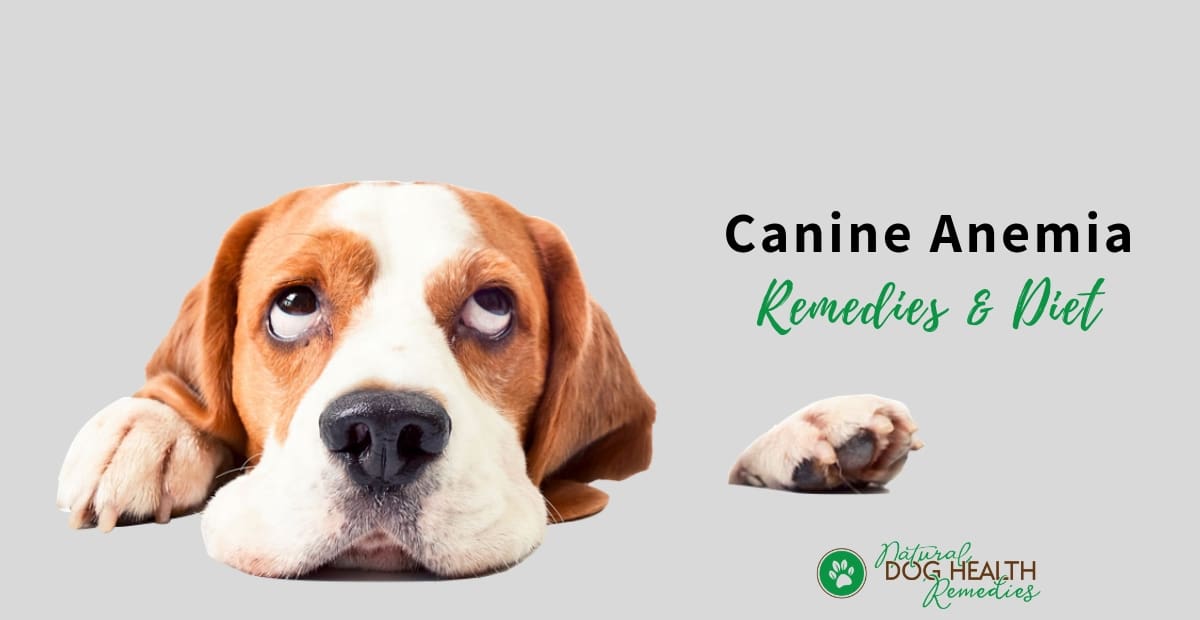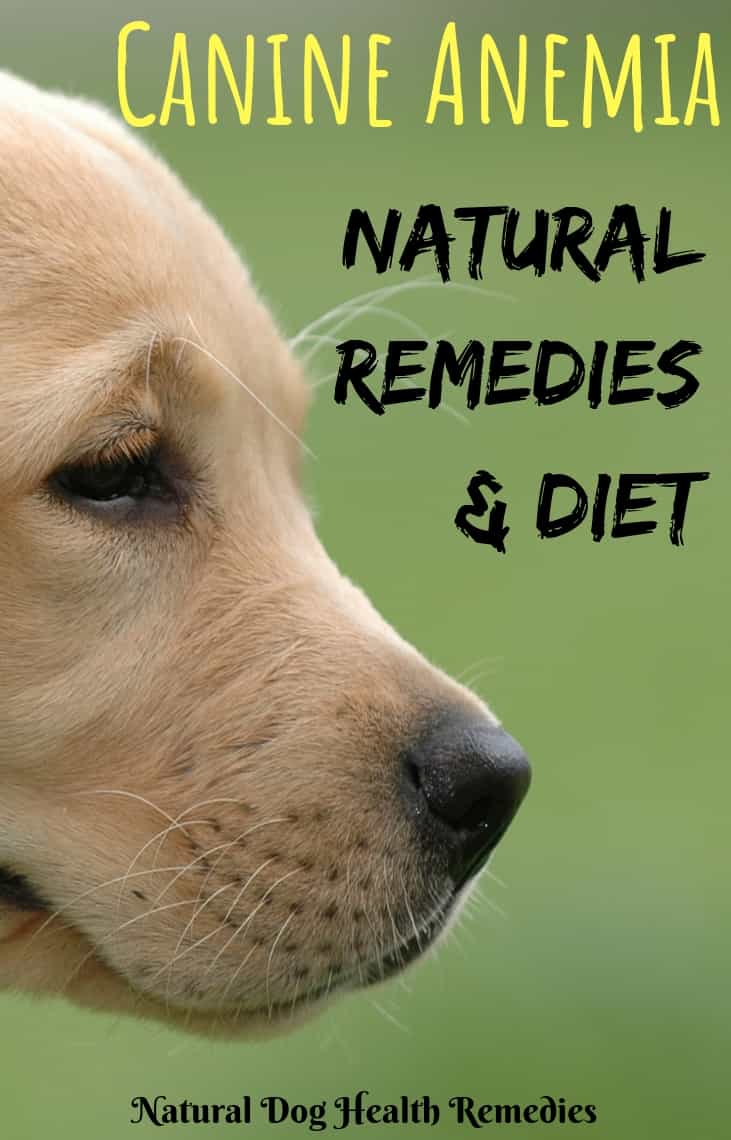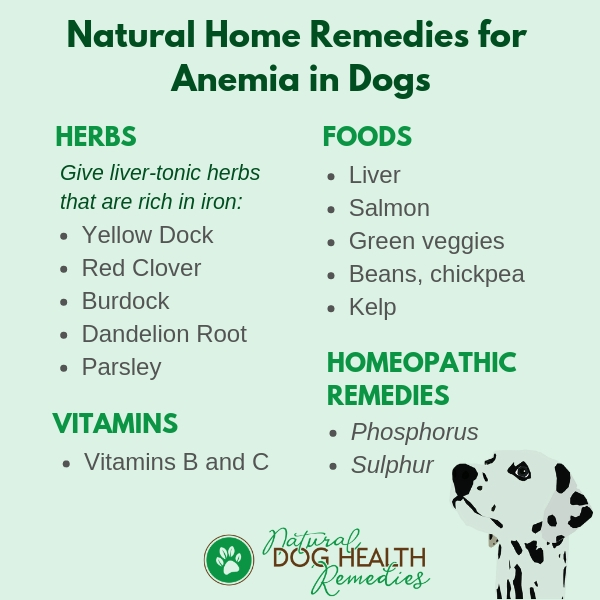Canine Anemia
(FTC Disclosure: If you make a purchase via a link on this page, I may receive a small commission, at no added cost to you.)

Overview
Anemia in dogs is a condition in which the dog does not have enough red blood cells to transport oxygen to different parts of his body.
Anemia is a symptom of an underlying problem. If your dog is anemic, be sure to take the dog to the vet for a thorough check-up to find out and accordingly deal with the root cause.
Iron Deficiency Anemia
When we think of anemia, many of us will connect the condition with iron deficiency.
While anemia caused by iron deficiency is more common in people, this condition is rare in dogs, although it can sometimes be found in dogs with malnutrition and puppies with hookworm infestations.
Signs and Symptoms of Canine Anemia
It is not difficult to tell if your dog is anemic. Here are the telltale signs:
- The dog's gums and the insides of her eyelids are pale (or white);
- The dog is lethargic and weak;
- The dog is panting, has labored breathing and a fast pulse.
If anemia is caused by internal bleeding due to ulcers for example, the dog's stools are much darker - even black and tarry-looking.
If a dog has serious anemia, he may have heart murmur and rapid heart beat. If under exertion (e.g. strenuous exercise), the dog may collapse.
Causes of Anemia in Dogs
In many cases, anemia in dogs is the result of blood loss caused by various reasons. Some common ones include:
- Parasites, such as severe infestations of fleas or worms;
- Wounds and traumas;
- Toxic or chemical poisoning. For example, it has been found that use of "Spot-on" flea control can cause anemia (and liver damage).
Occassionally, canine anemia indicates some more serious diseases, such as:
- Autoimmune disease (canine autoimmune hemolytic anemia - a condition in which the immune system attacks and destroys the body's red blood cells);
- Tumors of the intestinal tract, kidneys, and urinary bladder;
- Ulcers;
- Some forms of cancer.
How to Treat Anemia in Dogs
As mentioned above, anemia in dogs is a symptom of an underlying health issue. In order to cure anemia in a dog, the vet has to identify and treat the underlying health issue that is causing anemia.
For example, if a dog's anemia is caused by worm infestation, then the vet has to deworm the dog. If the anemia is caused by a stomach ulcer, the vet will need to find out what caused the ulcer and treat it accordingly.
If a dog has severe anemia, blood transfusion may be needed.
Natural Home Remedies for Anemia in Dogs
 While the underlying condition is being treated, you can definitely use natural home remedies to stimulate the growth of new red blood cells in order to help your anemic dog restore some strength and energy.
While the underlying condition is being treated, you can definitely use natural home remedies to stimulate the growth of new red blood cells in order to help your anemic dog restore some strength and energy.
Let's take a look at what we can use to achieve that.
Herbs
Herbs that are rich in iron and are liver tonics (liver is important in producing blood cells as well as cleansing the blood) are effective in helping dogs with anemia.
Some herbs that fall into this category include:
- Yellow dock (rich in iron; an effective blood cleanser);
- Red clover (nutritive; an effective blood cleanser);
- Burdock (nutritive; a liver tonic; an effective blood cleanser);
- Dandelion root (nutritive; a liver tonic; rich in iron);
- Parsley (nutritive; rich in iron and vitamins A, C, K);
Vitamins
Vitamin supplements should also be given to an anemic dog. In particular, B vitamins are essential in strengthening a dog's bone marrow, which is responsible for producing red blood cells. Supplementing an anemic dog with B vitamins (especially B12) is therefore helpful.
Vitamin C helps the body to absorb iron from the intestinal tract.
An Effective Blood Building Natural Product
This formula contains ingredients such as liver powder, herbs like yellow dock, red clover, raspberry, etc., which are rich in RNA/DNA, iron and vitamin B12 - all essential for the formation of red blood cells.
Many dog parents have seen very positive results in their anemic dogs after supplementing them with this supplement. It's definitely worth a try if your dog has anemia.

Diet
A diet rich in iron, vitamin B12, and protein is essential in helping the production of red blood cells.
Suitable foods include:
- Liver (iron, B-complex vitamins, protein);
- Salmon;
- Green vegetables such as spinach, kale, cabbage (the chlorophyll in the veggies can help the body to produce healthier blood);
- Beans, chickpea;
- Kelp (iodine and trace minerals). You can sprinkle kelp powder (I like Life Line Pet Nutrition Organic Ocean Kelp
) over your dog's food daily. (Use 1/4 to 1 teaspoon daily, depending on your dog's size.)
Homeopathic Remedies
In addition to the above natural remedies, you can also try one of these homeopathic remedies if your dog has anemia due to blood loss:
- Phosphorus: This remedy is effective for treating bleeding and anemia. Dogs needing this remedy are thin, chilly, hungry and thirsty. You can start off by giving your dog 3 pellets (30C) three times a day for about 3 days.
- Sulphur: If Phosphorus does not help, try this remedy especially if your anemic dog is flea- or worm-infested. Dogs needing this remedy also tend to have skin problems (dry, rough coat and flaky skin) and a poor immune system. You can give your dog 3 pellets (6X) two times a day for up to 2 weeks.

Preventing Canine Anemia
Since some parasites (e.g. intestinal worms) can cause blood loss in dogs, make sure that your dog is free from parasites!
Also keep your dog flea free. If your dog is heavily infested with fleas, chances are she will lose quite a lot of blood over time. As mentioned above, some flea products (e.g. Spot-on) may actually cause anemia in dogs, so try using natural flea control as much as possible.
Some medications such as NSAIDs can cause stomach and intestinal ulcers in dogs, which may result in anemia. Use NSAIDs with care and under supervision of your vet.
If at all possible, avoid long-term use of such medication.
For example, if your dog has joint pain, try using different natural remedies to soothe the pain. By adopting a holistic approach, you may eventually be able to reduce the drug dosage. Better yet, you may find that your dog no longer needs all the drugs!
ReferencesEldredge, et al. Dog Owner's Home Veterinary Handbook 4th edition (Wiley Publishing, 2007).
C.J. Puotinen, Natural Remedies for Dogs and Cats (Keats Publishing, 1999).
M.L. Wulff-Tilford and G.L. Tilford, Herbs for Pets (Bowtie Press, 1999).
D. Hamilton, Homeopathic Care for Cats and Dogs (North Atlantic Books, 1999).
L. Olson, Raw and Natural Nutrition for Dogs: The Definitive Guide to Homemade Meals (North Atlantic Books, 2010).





